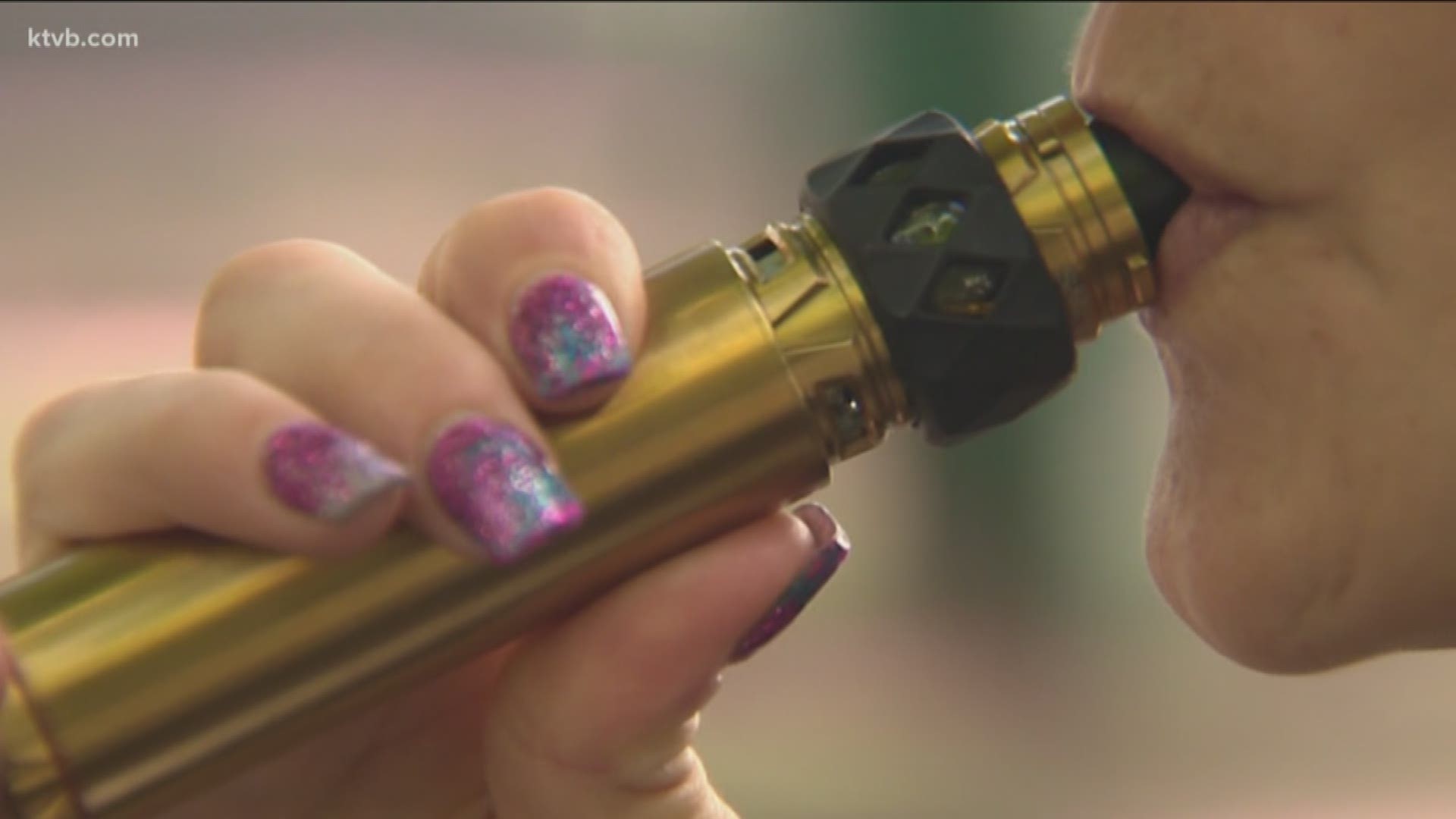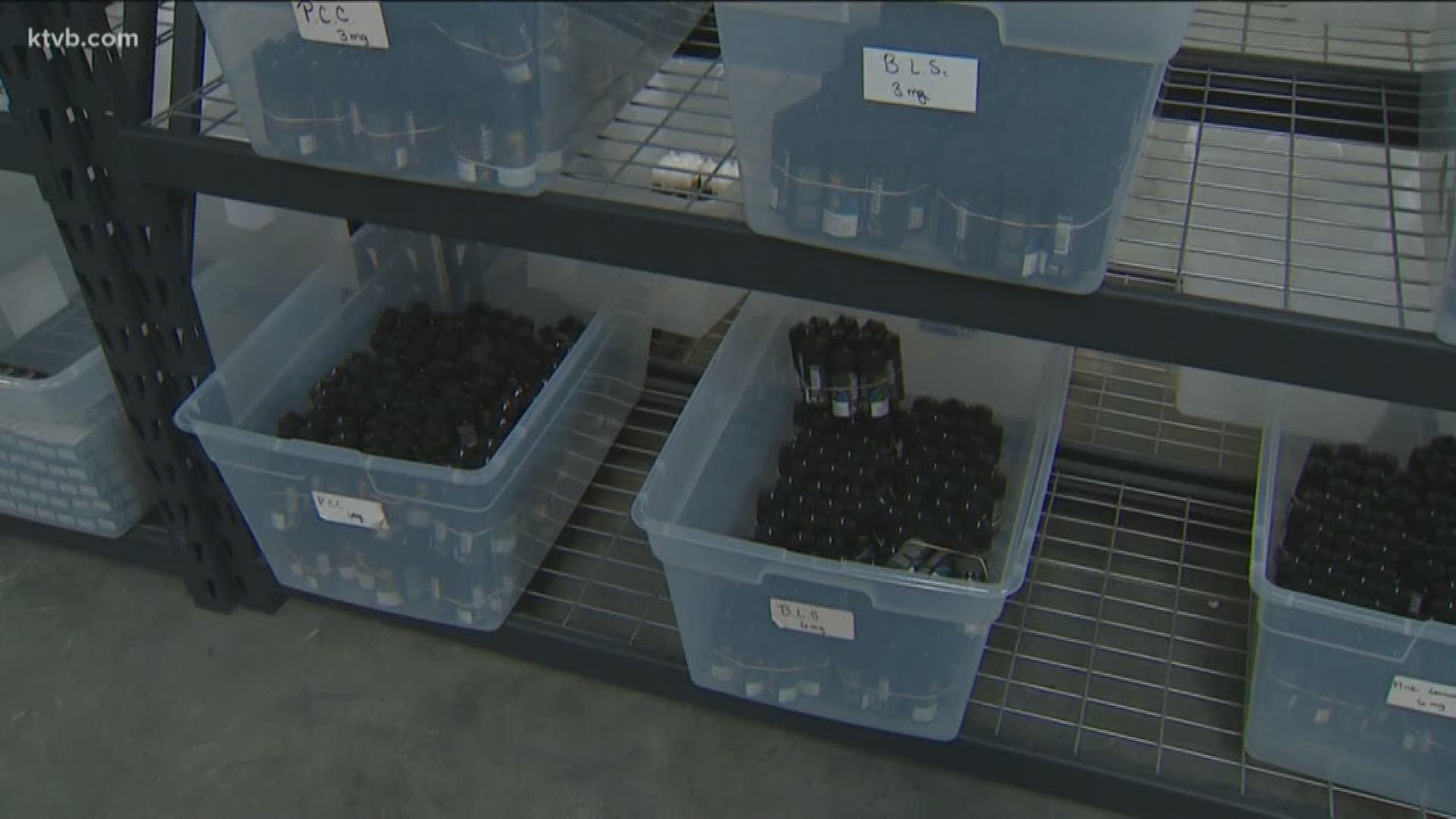BOISE, Idaho — Editors note: This the final installment in a three-part series looking at the many sides of vaping. Part One took viewers inside a Treasure Valley e-liquid manufacturing facility, and Part Two examined health experts' concerns about the impact of vaping on young people.
Anita Sloan was 18 when younger high schoolers asked her to pay a visit to a local vape shop and buy products on their behalf.
"I was like 'um, you should probably check what I do,'" she said with a laugh.
A student advocate, Sloan has been pushing Idaho and Washington D.c. for more restrictive regulation on tobacco and nicotine products for years. At 17, she testified before the Idaho Legislature in favor of Tobacco 21, a bill that would have raised the age to purchase tobacco products from 18 to 21.
Lawmakers ultimately rejected the measure.
But Sloan, now a sophomore at Boise State University, isn't done trying. Advocacy groups plan to again bring the Tobacco 21 measure before lawmakers during the 2020 session, this time with an increased focus on e-cigarettes and vape juice.
"We can never fully fix the problem with our legislation, but we can do our best to have a solution for it," she said. "And it could be one the most effective steps in the right direction."
Banning vaping products for those under 21 would make it much harder for kids to get their hands on them, by creating an age gap between minors and those who can legally purchase e-juice, Sloan said.
"If you're 17, you have 18-year-old friends," she said.
The project has been galvanized by a rash of unexplained serious lung issues linked to vaping. At least 15 people have died, and hundreds more were hospitalized in states across the country, including Idaho.
Although lawmakers balked at previous attempts to raise the smoking age - some taking issue with the up-to-a-year-in-jail penalty for adults caught buying tobacco products for someone under 21 - Sloan said she believes the measure will get traction.
"I think everyone has the general consensus of, 'these are our kids, this is the future, and this is important for us,'" she said.
Jeremy and Stacy Forsee, who work in the vaping industry, say they already are committed to keeping their products away from minors.
"We ask for their ID, and if they don't have it on them, we do have to ask them to leave, we do not allow minors in the shop," said Stacy Forsee.
Vape stores around the Treasure Valley react the same way when an underage person comes in, she said, adding that she would like to see increased scrutiny of e-liquid sold over the Internet.
"Online sales, all you have to do is an age verification and say yes, I'm of age, and you are entered onto the sites," she said. "Here, we have it regulated."
Jeremy Forsee, who co-owns an e-liquid manufacturing plant in Caldwell, says he would support raising the purchasing age, as Tobacco 21 advocates have proposed. He is more concerned about the possibility of a flavoring ban, which has already been enacted in several states and is under consideration at a federal level.
"If you take those flavors away from adults, it's going to create a black market," he warned.
Sloan argues that flavors, many of which feature fruit or candy, are attractive to young people - even if that is not the intention of e-juice manufacturers.
"I don't think in their minds they're like, 'We're gonna market this to kids,' but they're definitely looking at a youthful type of product," she said.
National data indicates nicotine use as a whole is rising in young people. Health experts say many of them are getting introduced through vaping, with some popular products delivering several times as much nicotine per hit as a traditional cigarette.
A bill like Tobacco 21 could reverse that trend, backers say. Any legislation that adds new restrictions on e-juice will have a marked impact on Idaho's vaping industry, but Sloan says that strain would ultimately be worth it.
"You've got to make sacrifices sometimes for something that's impacting kids," she said. "There will be a little bit of loss in revenue, but also an increase in health, and we can also shift those jobs to somewhere else."



